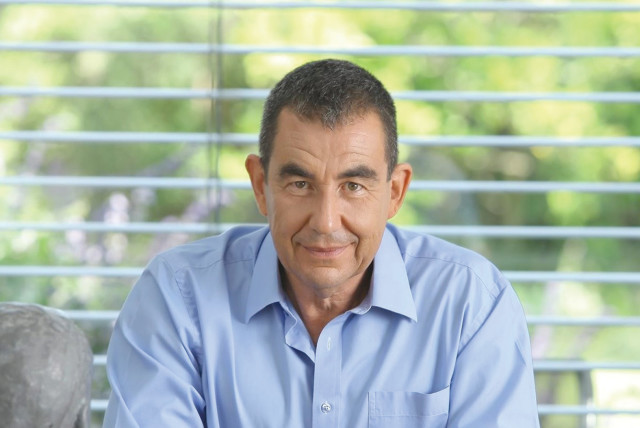Buttressing the middle: Israelis must unite to box out 'zealots'

NATIONAL AFFAIRS: In an ugly skirmish for dominance, the Zionist parties on the Right and Left aligned with the fringes.
Every political movement needs an animating idea.
In a slim Hebrew book published last month called L’hatzil et Yisrael (Saving Israel), the author and veteran journalist Ari Shavit set out to provide that idea for what he hopes will provide the basis for what he terms the Third Israeli Republic: a unified Zionist center.
The idea is not to create a new centrist party, for those already exist aplenty.
Rather, the idea is that the mainstream Zionist parties need to unite in a bloc around rejuvenated Zionist ideals to keep other elements in Israeli society – be they the ultra-Orthodox (haredim), ultrareligious Zionists (Hardalnikim), and supernationalists, on the one hand, or the radical Left, anti-Zionists and the Muslim Brotherhood, on the other – from holding the country’s political system hostage and setting the country’s tone and tenor.
And that is precisely what is happening now, he maintains. Prime Minister Benjamin Netanyahu’s government has fallen into the hands of what he calls zealots – the haredim, Hardalnikim, and supernationalists inside the Likud – who are dictating the government’s policy and leading the country in a direction the vast majority of the population does not want to see it go.
Right and Left have embraced fringe groups in battle over power
The problem, he lays out, is that the Right and Left have fallen into a situation where they are so busy trying to destroy each other that they have made alliances with elements that they ideologically disagree with just to beat the other side. The previous Naftali Bennett-Yair Lapid government did that by incorporating into the government the Islamic Movement’s Ra’am Party of Mansour Abbas, and Netanyahu did it by handing the keys to his government over to the haredi Degel Hatorah and to the Religious Zionist Party of Bezalel Smotrich and Itamar Ben-Gvir’s Otzma Yehudit.
“What shaped Israel’s political map is the conflict between the Right and the Left,” Shavit wrote. “At first, it was the tussle between Mapai and the Herut movement. Then it was the confrontation between the Alignment and Likud. Then it was the bitter struggle between Benjamin Netanyahu’s supporters and his opponents. To win the conflict, each side needed the support of extremists (Right and Left) and minority groups (haredim and Arabs). As a result, those extremist and those minority groups acquired disproportionate power. They eroded the Center, disintegrated mamlachtiyut (which Shavit translates as republicanism) and subordinated government policy to tribal and sectoral interests.”
In other words, locked in an ugly skirmish for dominance, the Zionist parties on the Right and Left aligned with the fringes and minority groups to defeat the other – and in the process gave the zealots and minority groups the keys to the kingdom. Shavit’s work is a call for the mainstream Zionist parties to unite under certain organizing principles and take those keys back.
SHAVIT IS an astute observer of Israeli politics and society who has previously written three books, including the widely acclaimed My Promised Land: The Triumph and Tragedy of Israel. A veteran journalist, he resigned from Haaretz and Channel 10 in 2016 amid sexual harassment allegations. After taking three years off from journalism, he returned as a weekly columnist for Makor Rishon in 2019. In addition to writing for Makor Rishon, he also writes twice monthly for Yediot Aharonot and is a regular panelist on Channel 13.
Sitting over coffee and soda water in a coffee shop in a Jerusalem mall, Shavit passionately unpacks his view of Israeli history, dividing it roughly into two periods: the First Israeli Republic, which began under David Ben-Gurion and extended under Labor Party hegemony until 1977, and the Second Israeli Republic, which began with Menachem Begin’s victory in 1977 and continued until the November elections.
“The basic historical analysis is that Israel is a miracle,” Shavit said. What Israel did in its early years after independence, during the First Republic, was “incomprehensible.”
“The ability of the First Republic to win three wars, to survive, to build 12 hospitals, five universities, a nuclear reactor in Dimona and put us at the forefront of science is an incredible achievement,” he said, adding that it also did something no other country has done: absorb more people than the number that lived in the country at the time.
One key to all this, Shavit argues, was “mamlachtiyut.” Shavit said Ben-Gurion realized that as gifted a people as they were, the Jews had within them a self-destructive streak that had to do with zealotry and an innate divisiveness. Or, as Ben-Gurion’s disciple Shimon Peres once put it, “We are one of the most gifted people in the world, but we don’t have the gift to be a people.”
“We destroyed ourselves in the First and Second Temples, and even during the Warsaw Ghetto Uprising, Hashomer Hatzair and Betar could not fight together,” Shavit said. “We have to fight this malaise.”
Ben-Gurion’s genius was in doing so by focusing the people’s energy on the republic, on mamlachtiyut – on the melting pot, the collective, the army, and the institutions of statehood.
“This republicanism was necessary to forge a people, but the price was a lack of sensitivity to human rights, minority rights, Jewish tradition, and this impacted the haredim, Arabs, and mainly the Mizrahim,” Shavit said. The First Republic was a revolutionary endeavor, but its successes did not come without the commitment of sins, unintentional as they may have been.
What happened, Shavit continued, is that the discontent of those marginalized during the First Republic gave birth to the Second Israeli Republic, ushered in with the election of Menachem Begin in 1977.
“If Ben-Gurion’s mamlachtiyut saved Israel in its first quarter century, Begin came and saved it in a different way,” Shavit said. “He brought in the Mizrahim, who were locked out, brought in the haredim; he brought a Jewish dimension to the country – Yiddishkeit.”
And because he was hounded for years by Mapai and labeled a fascist when he came to power, Begin wanted to prove that he was liberal: so he jealously fought for the courts, for civil rights, and he was very protective of the civil service. He combined all that, Shavit said, “with an uncanny ability to connect with the middle and lower classes.”
“Israel’s first 25 years were shaped by Labor, and then in a different way by the Likud,” Shavit said. “What is happening now is a rebellion not only against the Left and Ben-Gurion’s legacy but also a rebellion against Begin. The zealots are trying to change the character of the Israeli Right, and it goes against the grain of what the traditional Israeli Right always believed. It’s like moving the Republican Party from Eisenhower to Trump.”
In Shavit’s analysis, Netanyahu has turned the current government over to haredi, Hardal, and supernationalist zealots, whom he characterized as antidemocratic, anti-Zionist, and even anti-Jewish in that they are disregarding the will and wishes of 75% of the Jewish world who are not ultra-Orthodox or Torah observant and driving a wedge between Israel and the Diaspora.
“My fear,” he said, “is that we will destroy the achievements of these two republics, and my hope is that we will create a Third Republic that will actually combine them both.”
Shavit said he is not only advocating a Zionist unity government now, which he thinks is essential, “but, rather, a profound understanding of the beauty of Labor Zionism, and the beauty of Jabotinsky Zionism – Ben-Gurion and Begin – and synthesizing them.”
BUT HOW is this done? What is the vehicle?
Shavit stresses he has no political ambitions himself and that he is not trying to launch a political party. He views his book – which he said it would be fair to call a political manifesto – as “doing some of the ideological and conceptual work” that will lead to forming an alliance of the Zionist parties in the Center.
“My analysis of the problem is that the dynamic of ‘only Bibi’ or ‘anyone but Bibi’ has totally distorted everything. It became personal, confrontational, combative, vicious and poisonous, and everybody forgot their values and principles.
“As a result, the Center-Left relies on extreme left and Arab parties, while the Center-Right depends on ultra-Orthodox and ultranationalists, and the outcome is that the Zionist majority is silenced. There is a huge gap between where the people are and where the political leaders are. My wish is to create a Zionist alliance of liberal Zionists, national traditional Zionism, and religious moderate Zionism.”
According to Shavit, the country’s sudden craving for National Unity Party leader Benny Gantz, reflected in his recent meteoric rise in the polls, demonstrates a yearning for the Center.
“There is currently no responsible adult in the room, so I think it is time for the people to be responsible adults. The people are more mature than their politicians, and the politicians are disconnected from the people and reality.”
According to Shavit, Israel’s political problem is that the Right became very extreme, the Left became irrelevant, and the Center was viewed as opportunistic and shallow. This shallowness was one of the problems of the Bennett-Lapid government, he maintained. “Why did they fail? Because there was no narrative, no identity.” He added that the current crisis allows the Center to define itself and find a purpose.
“There is an incredible gap between the real Israel and political Israel,” Shavit said. “Real Israel did all the right things, creating a synthesis between East and West, traditional and modern, family with individualism, a sense of belonging with freedom, and ambitions with solidarity – Israeli society is incredible. In real Israel, there is real hope. The tragedy is that political Israel is exactly the opposite.
Shavit maintains that what is needed is for the public to push the politicians to reorganize the political map so that the mainstream Zionist parties, with which the vast majority of the country identifies, are calling the shots, and the extremists and the zealots remain on the fringes. He hopes his small book will nudge the public forward.
Jerusalem Post Store
`; document.getElementById("linkPremium").innerHTML = cont; var divWithLink = document.getElementById("premium-link"); if (divWithLink !== null && divWithLink !== 'undefined') { divWithLink.style.border = "solid 1px #cb0f3e"; divWithLink.style.textAlign = "center"; divWithLink.style.marginBottom = "15px"; divWithLink.style.marginTop = "15px"; divWithLink.style.width = "100%"; divWithLink.style.backgroundColor = "#122952"; divWithLink.style.color = "#ffffff"; divWithLink.style.lineHeight = "1.5"; } } (function (v, i) { });


